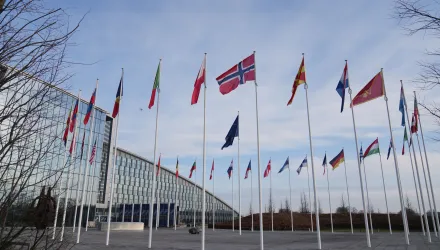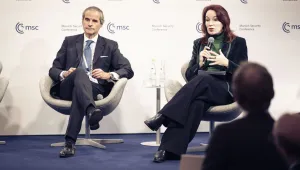Reducing the Use of Highly Enriched Uranium in Civilian Research Reactors
January 2016 | Report
U.S. National Academies of Sciences, Engineering, and Medicine
Following a report on the same topic in 2009, this report recaps progress made, identifies opportunities for improvement, and recommends next steps to further reduce the use of HEU for research and medical purposes around the world.
Global Fissile Material Report 2015
2015 | Report
International Panel on Fissile Materials
In its eighth year, the IPFM report tracks developments in HEU production and down blending to LEU. The 2015 report covers material reported by states through 2014. Of note, 2014 marked the first time that the global stockpile of HEU stopped shrinking as a result of Russia’s decision to stop down blending its HEU for the first time in two decades.
Plutonium Separation in Nuclear Power Programs
2015 | Report
International Panel on Fissile Materials
This report documents the dangers and tradeoffs of plutonium separation for civilian purposes, and how those dangers have led to a decline in the number of states maintaining such programs.
China's Spent Nuclear Fuel Management: Current Practices and Future Strategies
July 2011 | Journal Article
Energy Policy
By Yun Zhou
"Although China's nuclear power industry is relatively young and the management of its spent nuclear fuel is not yet a concern, China’s commitment to nuclear energy and its rapid pace of development require detailed analyses of its future spent fuel management policies. The purpose of this study is to provide an overview of China's fuel cycle program and its reprocessing policy, and to suggest strategies for managing its future fuel cycle program." (click here to view)
The Uncertain Future of Nuclear Energy
September 2010 | Report
International Panel on Fissile Materials
Edited by Frank von Hippel
"Today, the official high-growth projection of the Organization for Economic Co‑operation and Developments (OECD) Nuclear Energy Agency (NEA) estimates that nuclear power plants will generate about 20 percent of all electrical energy in 2050. Thus, nuclear power could make a significant contribution to the global electricity supply. Or it could be phased out — especially if there is another accidental or a terrorist-caused Chernobyl-scale release of radioactivity. If the spread of nuclear energy cannot be decoupled from the spread of nuclear weapons, it should be phased out." (click here to view)
Ending Reprocessing in Japan: An Alternative Approach to Managing Japan's Spent Nuclear Fuel and Separated Plutonium
November 2013 | Report
International Panel on Fissile Materials
By Frank N. von Hippel and Masafumi Takubo
"Japan finds itself trapped politically in a spent fuel reprocessing policy that has insignificant resource conservation and radioactive waste management benefits and is becoming increasingly dysfunctional, dangerous and costly. This paper proposes a way out of this reprocessing quagmire and alternative disposal methods for Japan’s accumulated plutonium." (click here to view)
The Security Implications of China's Nuclear Energy Expansion
June 2010 | Journal Article
The Nonproliferation Review
By Yun Zhou
"This report examines and evaluates security measures at Chinese civilian nuclear power plants and suggests ways to improve them. It also reviews current export control policies and systems, identifies likely challenges to the expanding nuclear sector, and proposes possible solutions." (click here to view)



